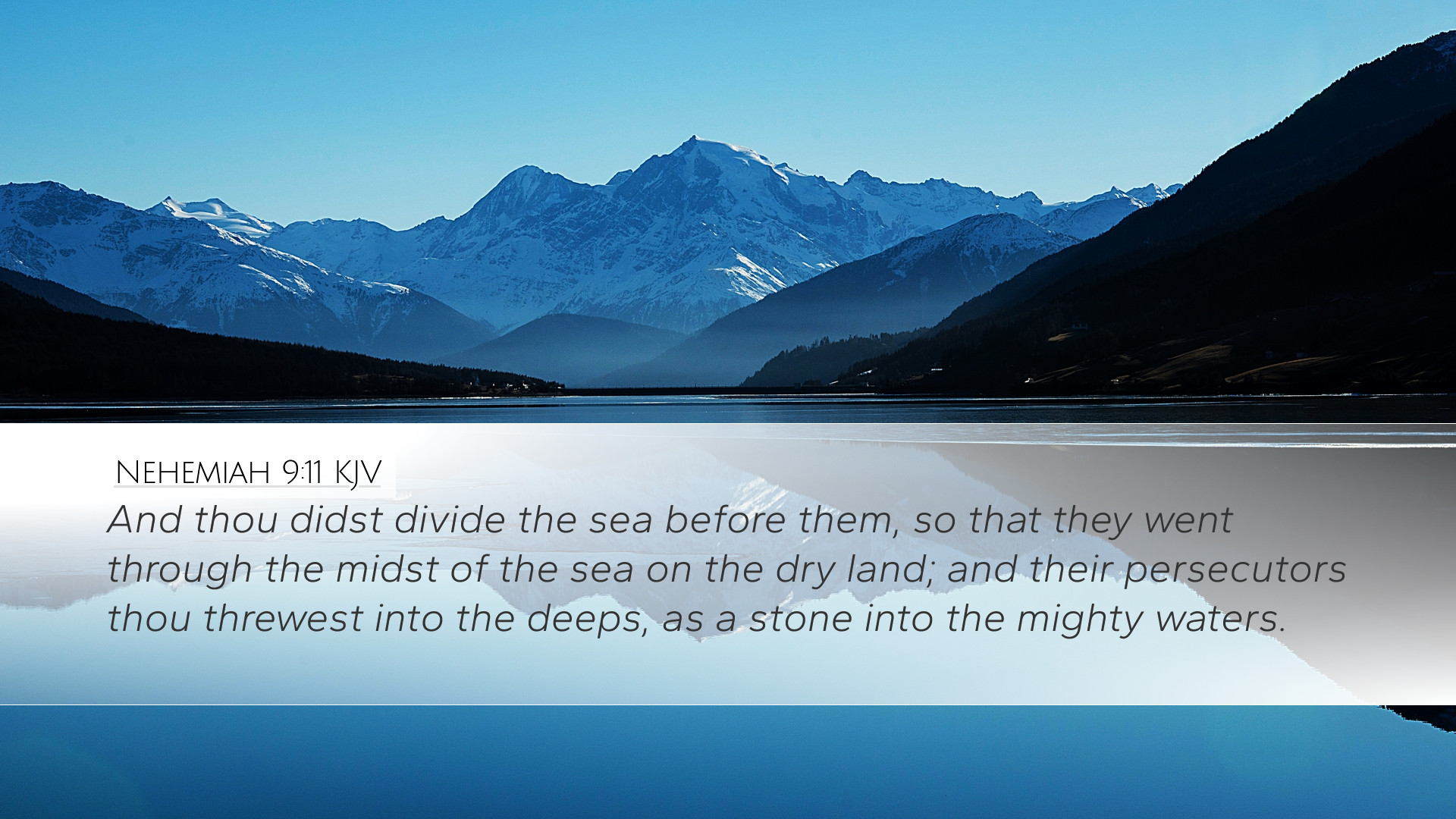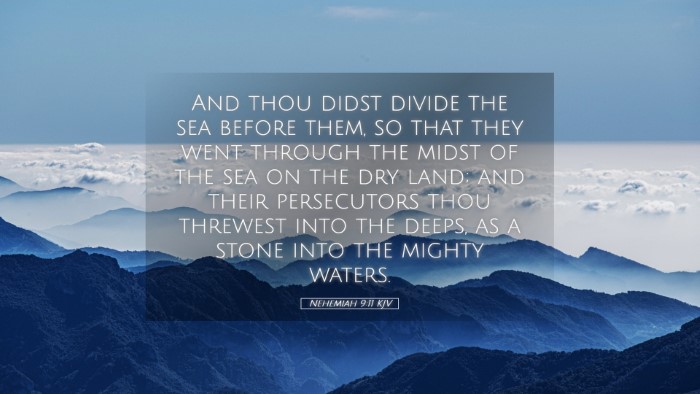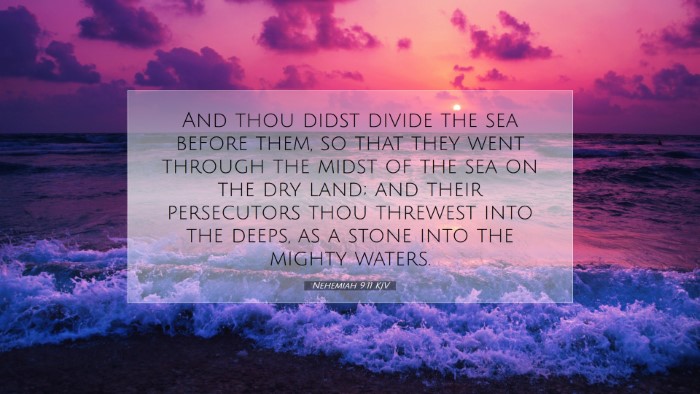Commentary on Nehemiah 9:11
Nehemiah 9:11 states, "And thou didst divide the sea before them, so that they went through the midst of the sea on the dry land; and their persecutors thou threwest into the depths, as a stone into mighty waters." This verse reflects a pivotal moment in the history of Israel, commemorating God’s unparalleled power and mercy in delivering His people from Egypt. The commentaries from Matthew Henry, Albert Barnes, and Adam Clarke provide deep insights into this passage.
Contextual Background
This verse is part of a longer prayer of the Levites, recounted during a time of renewal and confession among the Jewish people who had returned from exile. They remind themselves of God’s covenant faithfulness and their historical relationship with God. The reference to the miraculous crossing of the Red Sea emphasizes God’s wondrous acts that marked the beginning of Israel's journey to the Promised Land.
Insights from Matthew Henry
Matthew Henry, in his commentary, emphasizes the significance of the miraculous parting of the seas as a demonstration of God's omnipotence. He states that this act was not only a means of deliverance but also a profound display of God’s glory:
- Redemption through Divine Power: Henry asserts that God’s action in dividing the sea portrays His willingness and ability to save those in distress. For Israel, the sea represented an insurmountable barrier, yet divine intervention turned it into a pathway.
- Judgment of the Enemies: The second part of the verse highlights God's judgment on Pharaoh and his army. Henry notes that just as God delivered His people, He also dealt justly with their oppressors. This dual action of deliverance and judgment illustrates God's righteousness.
- Encouragement for Believers: Henry encourages readers that God's past faithfulness as evidenced in biblical history serves as a foundation for trust in Him during current tribulations.
Insights from Albert Barnes
Albert Barnes provides a nuanced reflection on the text, highlighting the purpose behind God’s miraculous acts:
- Symbol of Salvation: Barnes suggests that the parting of the sea is a metaphor for salvation, symbolizing the path to redemption that God provides. The image of walking on dry ground amidst the waters illustrates God's ability to make a way where there seems to be none.
- Divine Protection: The imagery of the enemies being thrown into the depths is further elaborated by Barnes, who notes that this showcases God's protective nature over His chosen people. The removal of their persecutors emphasizes the assurance that God fights on behalf of His children.
- Historical Reminder: Barnes stresses the importance of remembering such events. He argues that recounting these occurrences serves not only to glorify God but also to strengthen faith in future deliverances.
Insights from Adam Clarke
Adam Clarke’s commentary delves into the depths of the text, both literally and metaphorically. His analysis includes:
- Physical vs. Spiritual Deliverance: Clarke points out that while the Israelites experienced a physical escape from Egypt, this event also represents spiritual deliverance from sin and bondage. He extols the significance of the Red Sea as a type of baptism, where believers experience a transition from old to new life.
- Imagery of Water: In Clarke's view, water is often indicative of chaos and danger in the Scriptures. Thus, God controlling these waters symbolizes His mastery over chaos and His ability to bring peace amid turmoil, a message relevant across the ages.
- Call to Worship: Clarke urges readers to respond to God's mighty acts with thanksgiving and worship, seeing the act of division not merely as historical, but as a continual testament to God's sovereignty in their lives.
Theological Implications
The theological implications drawn from Nehemiah 9:11 are profound:
- Covenantal Faithfulness: The verse illustrates the nature of the covenant relationship between God and Israel, emphasizing that God acts for His people, fulfilling His promises regardless of their circumstances.
- The Power of God: It serves as a reminder of God's unmatched power in both creation and redemption. His ability to control the natural elements displays His authority over all things.
- Hope and Assurance: The narrative of deliverance is imbued with hope. In current contexts, believers can draw from this history, finding assurance that God is defensively present against all forms of oppression they may face.
Conclusion
Nehemiah 9:11 provides rich material for reflection on God's saving acts, covenant fidelity, and the historical roots of faith. Through the lens of public domain commentaries, this verse can be appreciated for its diverse implications for theology, worship, and practical living among believers.
As we engage with the text, it calls us to remember, reflect, and respond to God's extraordinary deeds in history while remaining confident in His continued faithfulness in our lives today.


